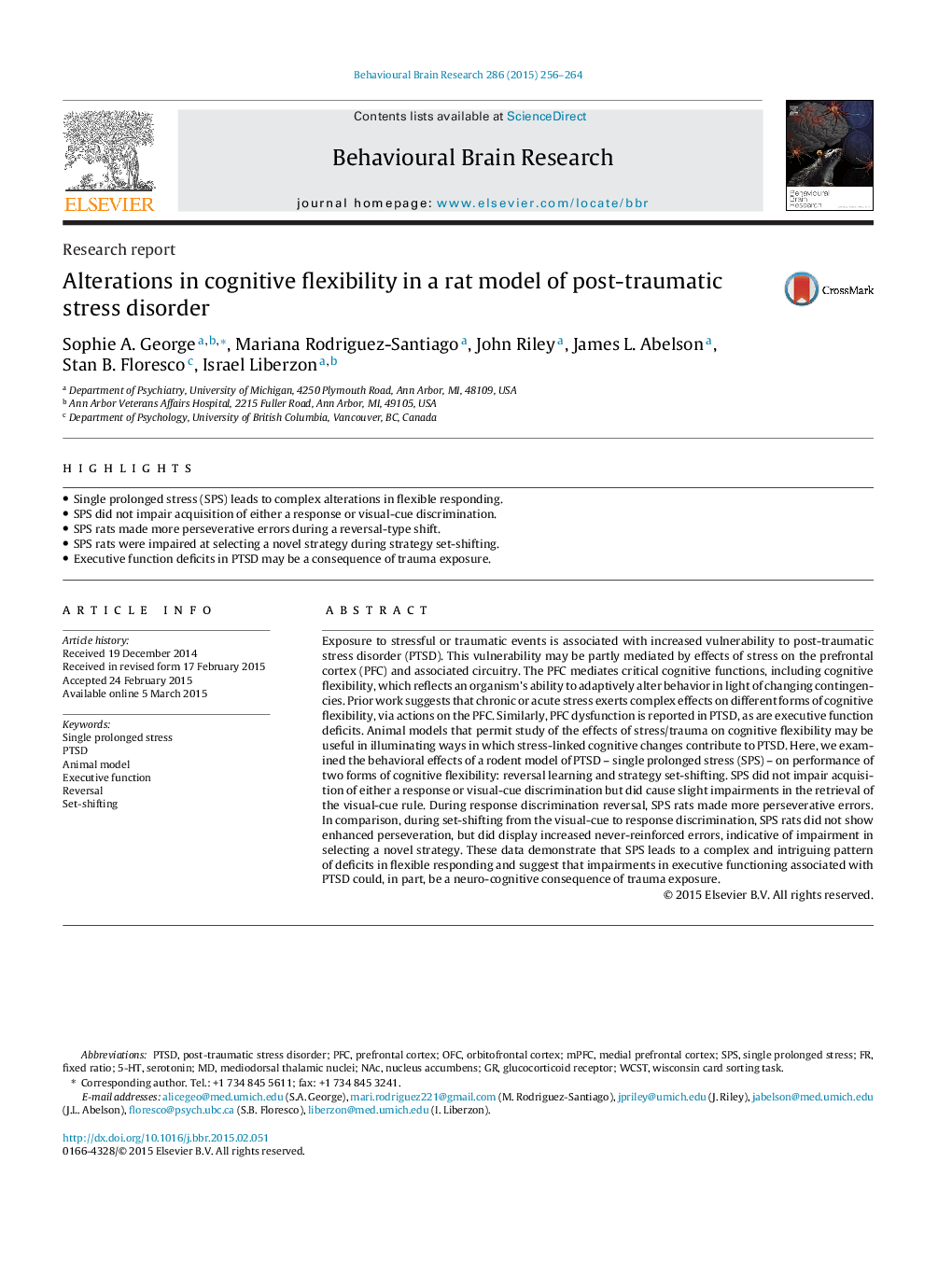| کد مقاله | کد نشریه | سال انتشار | مقاله انگلیسی | نسخه تمام متن |
|---|---|---|---|---|
| 6257144 | 1612946 | 2015 | 9 صفحه PDF | دانلود رایگان |
- Single prolonged stress (SPS) leads to complex alterations in flexible responding.
- SPS did not impair acquisition of either a response or visual-cue discrimination.
- SPS rats made more perseverative errors during a reversal-type shift.
- SPS rats were impaired at selecting a novel strategy during strategy set-shifting.
- Executive function deficits in PTSD may be a consequence of trauma exposure.
Exposure to stressful or traumatic events is associated with increased vulnerability to post-traumatic stress disorder (PTSD). This vulnerability may be partly mediated by effects of stress on the prefrontal cortex (PFC) and associated circuitry. The PFC mediates critical cognitive functions, including cognitive flexibility, which reflects an organism's ability to adaptively alter behavior in light of changing contingencies. Prior work suggests that chronic or acute stress exerts complex effects on different forms of cognitive flexibility, via actions on the PFC. Similarly, PFC dysfunction is reported in PTSD, as are executive function deficits. Animal models that permit study of the effects of stress/trauma on cognitive flexibility may be useful in illuminating ways in which stress-linked cognitive changes contribute to PTSD. Here, we examined the behavioral effects of a rodent model of PTSD - single prolonged stress (SPS) - on performance of two forms of cognitive flexibility: reversal learning and strategy set-shifting. SPS did not impair acquisition of either a response or visual-cue discrimination but did cause slight impairments in the retrieval of the visual-cue rule. During response discrimination reversal, SPS rats made more perseverative errors. In comparison, during set-shifting from the visual-cue to response discrimination, SPS rats did not show enhanced perseveration, but did display increased never-reinforced errors, indicative of impairment in selecting a novel strategy. These data demonstrate that SPS leads to a complex and intriguing pattern of deficits in flexible responding and suggest that impairments in executive functioning associated with PTSD could, in part, be a neuro-cognitive consequence of trauma exposure.
Journal: Behavioural Brain Research - Volume 286, 1 June 2015, Pages 256-264
